More that six years on Americans are still pessimistic about the state of the economy
It has been more than six years since the financial crisis of 2008, and although the job market and the economy have both made great strides since then, the American public remains jittery and unsure that things are really back to normal. And the most recent Economist/YouGov polls point out American worry about the future and continued anger at Wall Street.
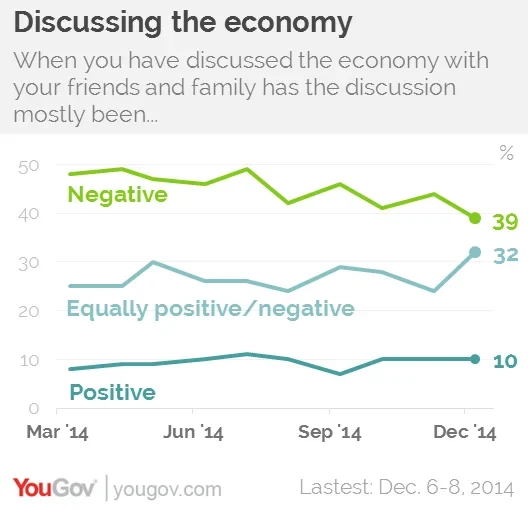
Just over half the public recognizes that the jobless rate is now lower than when President Obama took office in 2009, just a few months after the September 2008 financial crisis. But only 35% can put the current unemployment rate below 6%, where it is today. And only one in four knows that there are more jobs today that immediately before the Great Recession began.
So when Americans talk about the economy with their friends and family, they are still more likely to say and hear bad news than good news.
Those mostly negative discussions today are concentrated among those in the middle income bracket - people with yearly family incomes between $40.000 and $100,000). Senior citizens are more likely than younger adults to have negative discussions (48% of those 65 and older say their discussions about the economy are mostly negative, compared with 21% of those under 30). 55% of Republicans have mostly negative conversations about the economy, compared with only 20% of Democrats. But few Democrats (17%) are having positive discussions.
Still, there are fewer negative conversations about the economy today that there were earlier this year.
Jobs remain a great concern. One small positive finding comes when people are asked about the seriousness of unemployment in the country and in their local community. Americans are more likely to describe unemployment as a “very serious” national problem than they are to say it is “very serious” in their own communities.
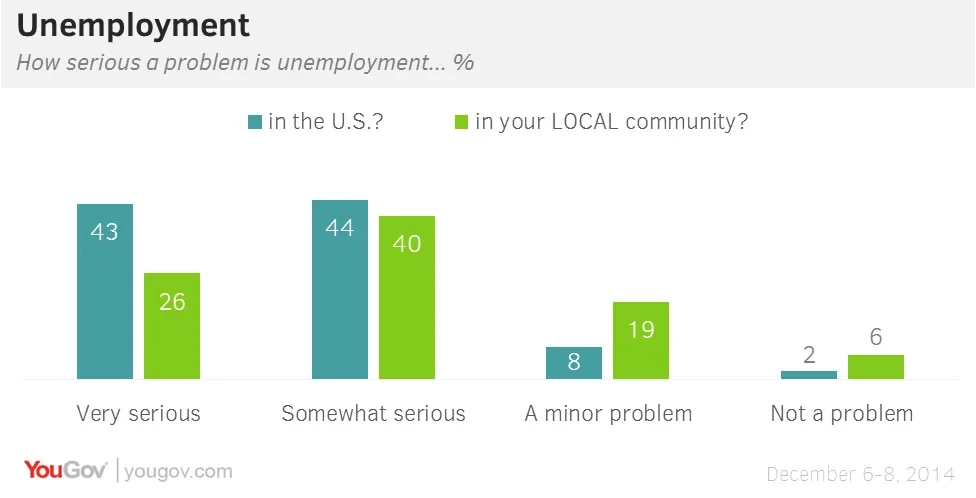
Still, one in four see joblessness as a very serious local problem.
The Great Recession and the 2008 financial crisis still haunt Americans. Only 18% say the country has recovered from the crisis (although that is up ten points from last September). Two in three see at least a 10% chance of a similar crisis happening in the next 12 months, with nearly one in five giving even odds or better there will be another financial crisis next year.
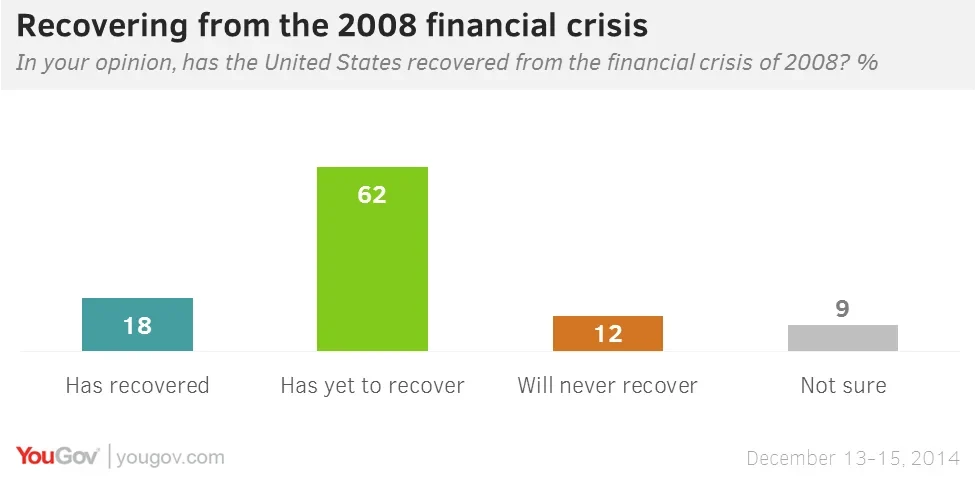
The 2008 crisis hit all groups of Americans – just about four in ten in every group say it had a serious impact on them personally. Overall, 43% describe the 2008 crisis as having a serious impact, just about the same percentage who reported this a year ago.
And there is a sense that the Obama Administration hasn’t done enough. Only 18% believe the current Administration has made the country safer from another financial crisis. Even Democrats aren’t sure things have gotten better: just 37% of Democrats say the current Administration has made the country economically safer.
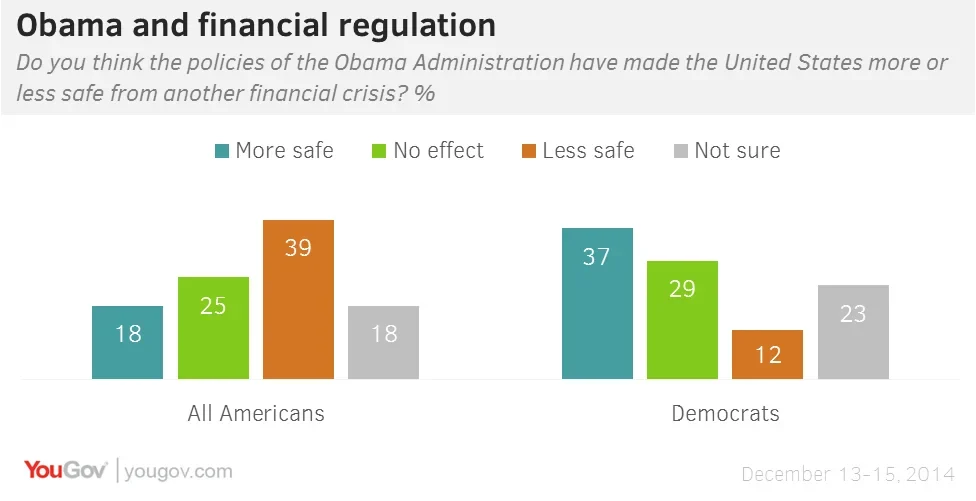
Even though the crisis began before Barack Obama was inaugurated, there are people who want to blame him for it. One in four Americans, and nearly half of Republicans say the Obama Administration has a great deal of responsibility for causing the 2008 financial crisis.
The partisan finger-pointing also extends to evaluations of the George W. Bush Administration. Only 6% of Republicans say the Bush Administration had a great deal of responsibility for the crisis. Most Democrats disagree.
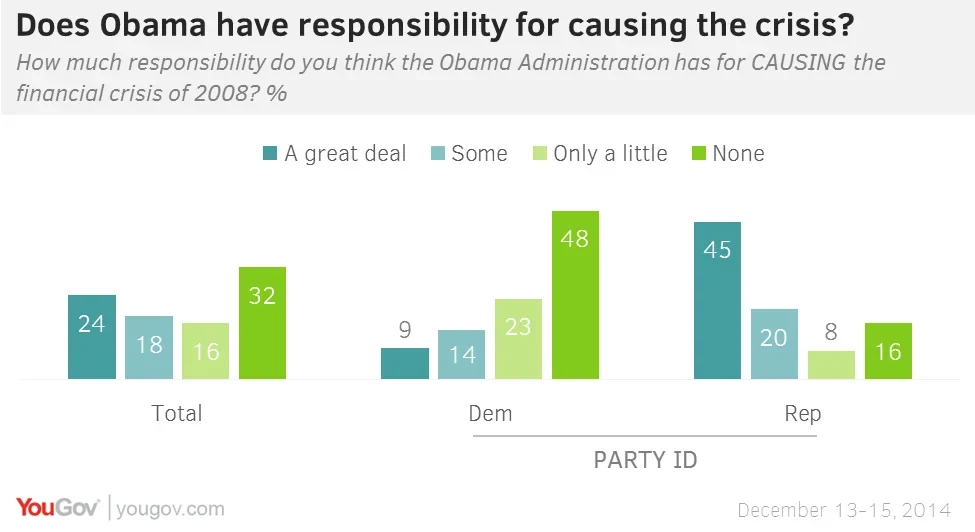
Despite a willingness to blame political leaders, Americans see far more blame falling on banks and financial institution, and on Wall Street. More than half (53%) put a great deal of responsibili8ty on the banks; 62% say Wall Street has a great deal of responsibility for the crisis.
Wall Street has a lot to answer for. And Americans continue to hold Wall Street in very low esteem. More than eight in ten have little or no trust that Wall Street bankers would do what is best for the economy. Only 17% have even somewhat trust.
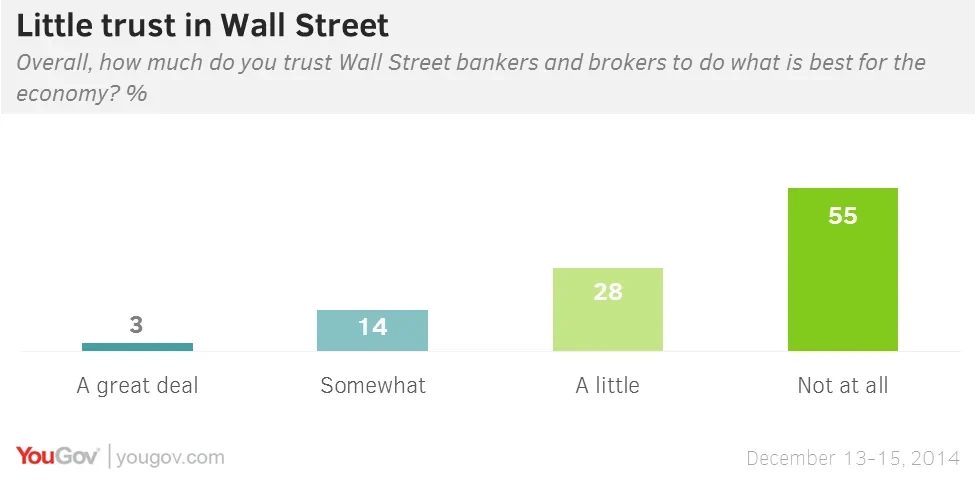
More than seven in ten agree with statements like “Most people on Wall Street would be willing to break the law if they believed they could make a lot of money and get away with it,” and “Wall Street is dominated by greed and selfishness.” Only one in five think “…people on Wall Street are as honest and moral as other people.”
Nearly two in three think that Wall Street should be subject to tougher regulations. So do nearly half of Republicans, a group that usually opposes increased regulation.
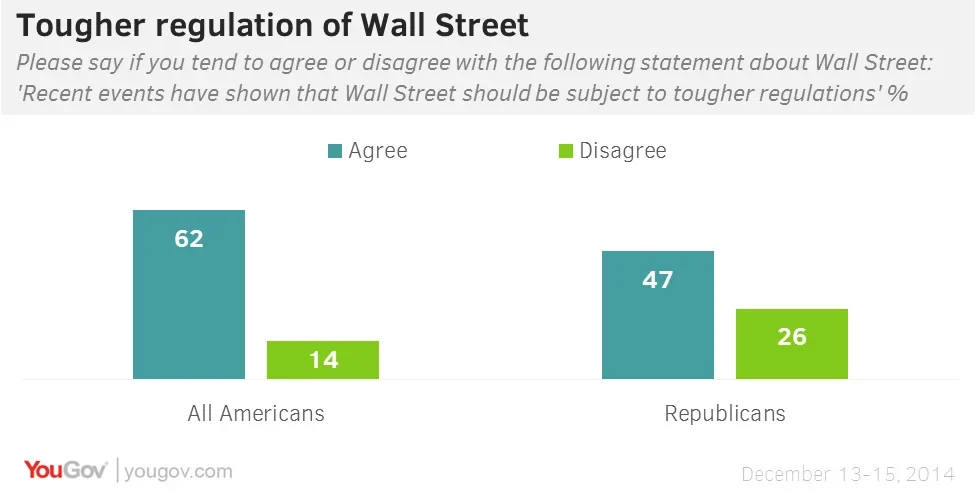
Economist/YouGov poll archives can be found here.








